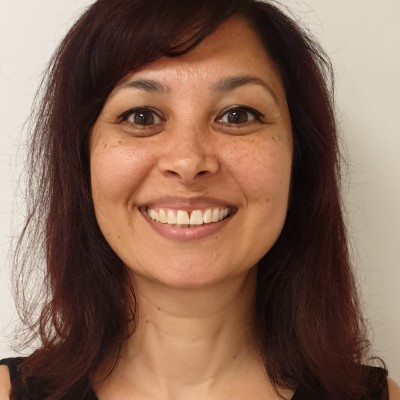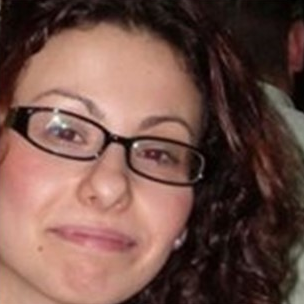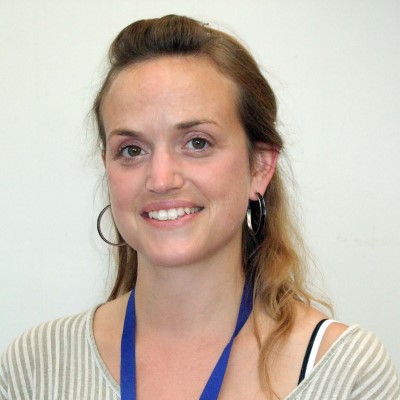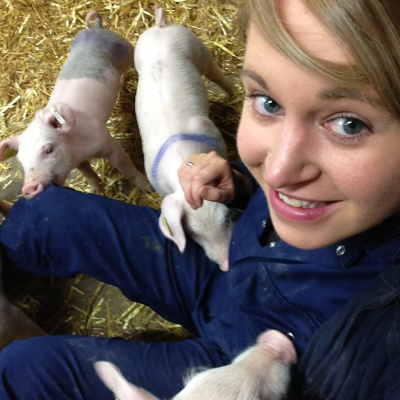CIEL | Meet the Scientist
Dr Siobhan Abeyesinghe
Associate Professor in Animal Behaviour & Welfare Science

What project/s are you currently working on?
I’m just commencing a project funded by BVA Welfare Foundation and British Poultry Council entitled “Breeding for better broiler welfare: balancing sustainability, economic and consumer preferences” in collaboration with London School of Hygiene & Tropical Medicine (LSHTM) and Slate Hall Veterinary Practice. Fast growing broiler chickens have been associated with poorer welfare outcomes.
Despite consequent campaigns for producers to shift towards slower-growing “Better (welfare) Breeds”, there is poor understanding of the collective environmental, economic and consumer responses to slower-growing broiler breeds. We will consolidate and expand upon disparate and patchy information available to Industry and other stakeholders on the impacts of any shift towards production of slower growing broiler chickens in the UK, including analysis of policy and stakeholder drivers, the notable gap on consumer perspectives and improved understanding of welfare, environmental and economic trade-offs. We aim to identify barriers, opportunities and trade-offs to the UK adoption of slower-growing breeds and to propose solutions that consider both bird welfare and sustainability.
Our findings will support advice to producers on adoption of higher-welfare breeds with consumer-acceptable credentials that have the least detrimental environmental footprint and impact on performance.
I am also involved in research with industry partners to develop AI imaging systems to monitor poultry behaviour & welfare, allowing for early intervention in flock issues. Recent work has also explored the use of wearable sensor technology (accelerometers) to monitor poultry behaviour, lameness and disease for the same purpose.
What capability are you drawing on to deliver the research?
The Breeding for better broiler welfare will combine (i) social sciences expertise to generate new data on drivers, stakeholder perspectives and consumer views supported by our in-house expertise in qualitative data; with (ii) animal welfare science, agribusiness and data modelling expertise to generate preliminary estimates of key scenarios incorporating greater externalities and recorded data compared to previous use of estimates. For the latter we will use unique data sets incorporating welfare, antibiotic-use and production data for the main UK (conventional) fast growing and slow growing breeds; one shared by industry and one generated with a large broiler breed comparison study examining production and welfare outcomes which was undertaken in RVC’s State of the Art Welfare Barn.
The Welfare Barn comprises 10 identical rooms (2 with Category 3 capability) and 2 cross sections through an animal house allowing us to replicate and scale up studies for various species. It has CCTV capability throughout and is equipped to control and monitor (where appropriate): (minimum) air temperature; ventilation rate, airflow pattern, air speed; light intensity, spectrum, photoperiod; ammonia concentration and emission rate; background sound level (4 rooms only); misting; automatic weighing and feeding.
The poultry monitoring systems work accesses our expertise in poultry behaviour and welfare, programming and bioinformatics to develop and to validate systems. RVC hosts a cluster facility dedicated to quantitative research that comprises of two head nodes and nine compute nodes, providing a total of 536 compute cores and 4.5 TB of memory. The 64-bit Linux operating system supports a diverse range of applications and simulation software as well as a comprehensive software development environment used in quantitative biology research.
What would be your ideal research project assuming no barriers to resources?
There is much scope to improve welfare assessment and monitoring of poultry which is currently limited to a single cross-sectional assessment of primarily health outcomes at the end of production. This is likely to penalise some breeds unfairly, depending for example when welfare issues tend to occur, leading to unrepresentative assessments.
Our recent work identified key behavioural indicators for broiler chickens that both sensitively predict health outcomes and inform on motivational and affective states (Abeyesinghe et al 2-21). Despite the importance attributed by consumers to the performance of natural behaviour as representative of good welfare and significant advantages in representing broader aspects of bird welfare than health alone, whilst minimising disturbance and stress associated with many pre-slaughter standard measures (which cannot support real time management), behaviour is not currently incorporated in a meaningful way into standard breed and welfare assessments.
The primary reason is logistical since valid objective data collection is extremely time consuming. Research to incorporate AI systems for monitoring of behaviour is ongoing, but to date has focussed primarily on simple behaviour and movement at flock level as a general indicator of a problem. Instead, if resources were not a bar, specific behavioural indicator profiles could allow more targeted monitoring of health and behaviour to identify specific issues.
Further work is necessary to examine the impacts of weight, growth and breed on key outcomes before representative monitoring thresholds can be determined. However, this approach would allow development of real time systems to allow early intervention in issues and assessment of welfare and production performance across the production cycle, even to bird level given that welfare ultimately refers to the individual’s experience.
How did you arrive at doing what you do now?
I was always fascinated by animals and their behaviour. I took Animal Science at University of Newcastle-Upon-Tyne where I realised that animal behaviour and animal welfare could be studied as sciences and used to generate evidence with major impacts for animal and stakeholder populations.
I got a scholarship to so a MSc in Applied Animal Behaviour & Animal Welfare at University of Edinburgh, did a short stint as a research assistant at then Macaulay Institute (Aberdeen) and went on to do a PhD in poultry behaviour and welfare with Prof Christine Nicol and the late Prof Christopher Wathes. I came to RVC as a postdoc in Prof Wathes’ group and was later appointed to a lectureship in Animal Behaviour & Welfare Science. I currently head up the RVC Animal Welfare Science & Ethics team, teach across various RVC courses and conduct research with a focus on poultry behaviour and welfare.
Can you provide some information on some of the work your institution is involved in?
RVC research falls under two themes, both embracing the One Health philosophy and encouraging multidisciplinary approaches. These are Comparative Physiology and Clinical Sciences (CPCS) and Integrated Research into Livestock and Food Systems (IRLFS) encompassing research relevant to companion and food producing animals respectively. The IRLFS teams work in various areas including food safety and sustainable food systems in local and global settings; understanding pathogens including work on vaccinology, AMR, diagnostics, and animal welfare. Recent projects of interest include, vaccination practice in sheep and barriers to training for farmers and understanding disease mechanisms of bovine TB.
The RVC just invested a total of nearly £50M into new facilities including for the Centre of Vaccinology and Regenerative Medicine. This Centre will focus on techniques/technologies used in both research themes, including animal research replacement technologies such as 3D organ cultures (organ-on-a chip, precision cut slices), CRISP/Cas9 genome editing and a new Flow Cytometry Core Facility using laser-based technology to study cells and cell components. The Vaccinology part of the Centre is also part of a new Coordinated Research Project with the FAO/IAEA Laboratories in Vienna to develop and provide training in new techniques to measure vaccine effectiveness.
We collaborate with industry partners on cutting edge research, for example in the development of sensor based automatic monitoring systems, and also can act as a Contract Research Organisation for more specific service-based work for commercial partners. Learn more here.
The RVC is also a partner in the UKRI Food Systems Doctoral Training Academy which aims to train “over 60 interdisciplinary doctoral researchers capable of leading the UK towards resilient, healthy and inclusive food future”. A main research theme is “Healthy Animals” which encompasses the interactions between livestock, sustainable food systems, environmental impacts and nutrition security as well as livestock welfare. The Food Systems CDT involves Associate Partners from government, business and civil society organisations who can contribute in different ways for example by offering placements, partnering in research and contributing to training. To find out more contact [email protected]. This centre for doctoral training in food systems also links closely to the Interdisciplinary Food Systems Teaching and Learning (IFSTAL) programme – a cross-university learning community and resource to equip learners with relevant food systems skills and enable a step change in food systems thinking.
Globally the RVC acts as Reference Centre for Veterinary Epidemiology for the Food and Agriculture Organization of the United Nations, providing advice and expertise on risk-based animal disease surveillance to FAO and FAO member countries. Jointly with the Animal and Plant Health Agency (APHA), we co-host the interdisciplinary Risk Analysis and Modelling Collaborating Centre of the World Organization for Animal Health (WOAH), promoting and facilitating the use of risk analysis and modelling to inform policy development for controlling disease, improve animal welfare and protect public health. We lead the One Health Poultry Hub, an international consortium including more than 60 named co-investigators working to reduce the impact of poultry intensification on the risk of zoonotic diseases and antimicrobial resistance, as well as work on food safety and food security in animal source food value chains in three countries in Asia and Africa.
Find out more about our Associate Member, Royal Veterinary College







